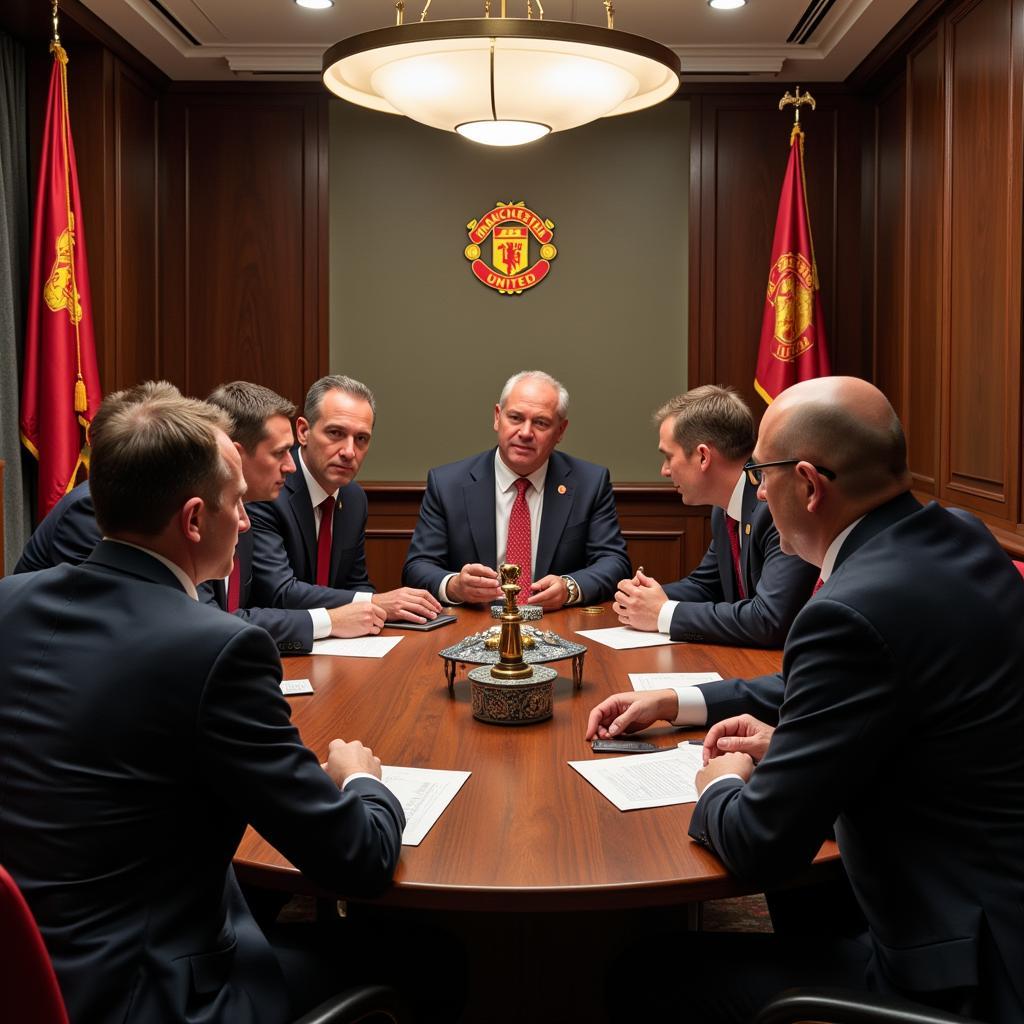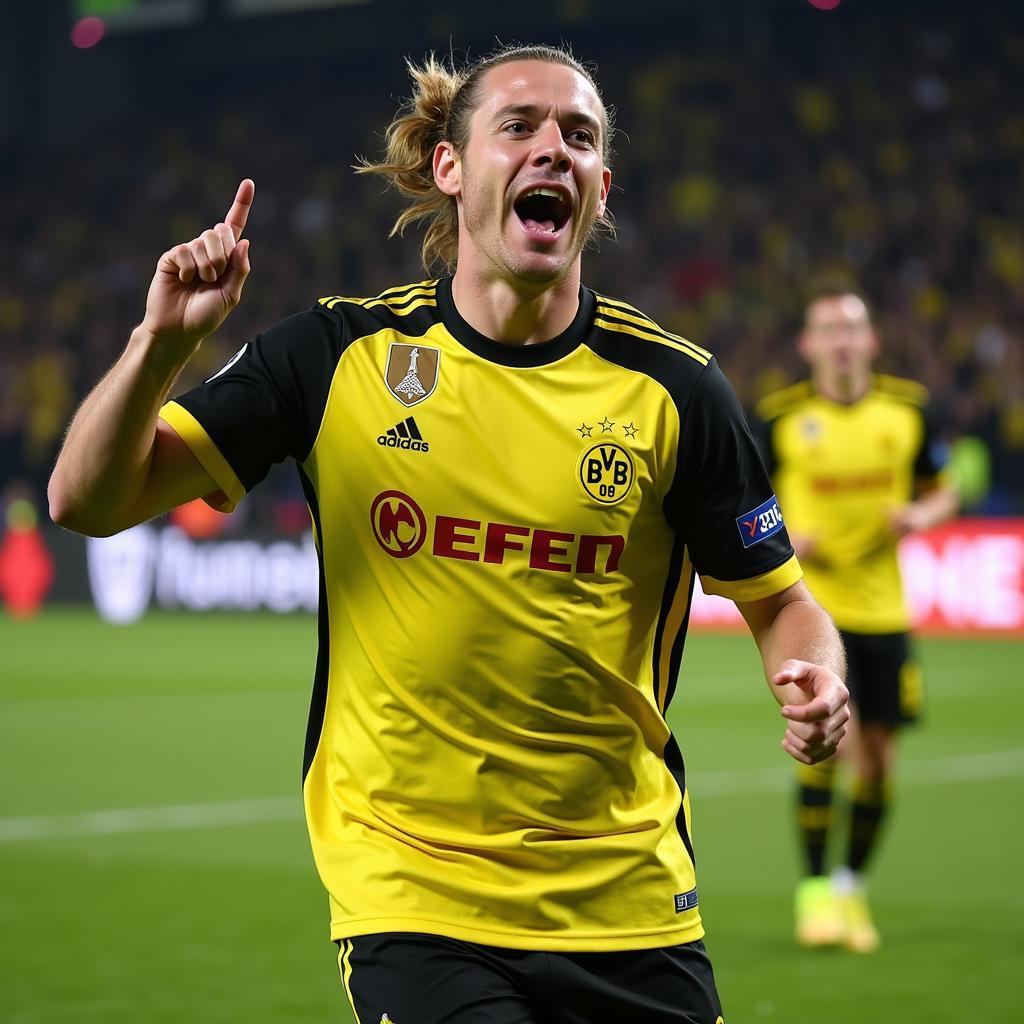Why Did Haaland’s Transfer to United Collapse?
November 4, 2024The rumored transfer of Erling Haaland to Manchester United dominated headlines for months, leaving many wondering why the deal ultimately fell apart. This article delves into the reasons behind the collapsed transfer, exploring the complexities of the negotiations and the factors that influenced both Haaland and Manchester United’s decisions.
Unraveling the Manchester United Transfer Saga
The potential move to Old Trafford seemed like a perfect fit for both parties. Manchester United needed a prolific striker, and Haaland was a rising star hungry for trophies. So, what went wrong? The answer, as with most transfer sagas, is multifaceted. Several key factors contributed to the breakdown, ranging from agent demands to club strategy.
Agent Fees and Financial Demands
One of the major sticking points was reportedly the substantial agent fees demanded by Mino Raiola, Haaland’s agent at the time. These fees, combined with Haaland’s wage expectations, proved to be a significant hurdle for Manchester United. The club, while eager to secure his services, was unwilling to compromise its financial structure for a single player, no matter how talented.
 Haaland and Manchester United Transfer Negotiations
Haaland and Manchester United Transfer Negotiations
Champions League Football: A Non-Negotiable
Another crucial factor was Manchester United’s failure to qualify for the Champions League. For a player of Haaland’s ambition, competing at the highest level of European football was a non-negotiable. Manchester United’s absence from the competition significantly diminished their appeal, making other clubs, offering Champions League football, more attractive propositions.
Long-Term Vision and Project Suitability
Beyond financial considerations and Champions League football, the overall project and long-term vision also played a crucial role. Haaland and his team were looking for a club with a clear pathway to success, a stable environment, and a manager who could nurture his talent and help him reach his full potential. While Manchester United presented a prestigious option, doubts about the club’s direction and stability may have influenced Haaland’s decision.
Ole Gunnar Solskjaer’s Influence: A Missed Opportunity?
The presence of Ole Gunnar Solskjaer, Haaland’s former manager at Molde, at Manchester United was initially seen as a significant advantage. However, the relationship, while positive, wasn’t enough to overcome the other obstacles.
Tactical Fit and Playing Style Concerns
While Solskjaer admired Haaland’s talent, questions remained about how he would fit into Manchester United’s tactical setup. There were concerns about his compatibility with the existing squad and whether his playing style would complement the team’s overall approach.
The Borussia Dortmund Decision: A Stepping Stone
Ultimately, Haaland chose Borussia Dortmund, a club renowned for developing young talent. This decision provided him with regular playing time in a competitive league and the opportunity to showcase his abilities on the Champions League stage.
A Calculated Move for Career Progression
The move to Dortmund proved to be a shrewd decision, allowing Haaland to hone his skills and establish himself as one of the world’s most coveted strikers. It served as a perfect stepping stone to his eventual transfer to Manchester City.
 Haaland's Success at Borussia Dortmund
Haaland's Success at Borussia Dortmund
Conclusion: A Complex Web of Factors
The collapse of Haaland’s transfer to Manchester United wasn’t a simple matter of one factor. It was a confluence of circumstances, including high agent fees, lack of Champions League football, concerns about the club’s long-term vision, and questions surrounding tactical fit. While the move didn’t materialize, the saga provided valuable insights into the complex world of football transfers and the multifaceted considerations that influence a player’s decision-making process. Ultimately, Haaland’s choice to join Borussia Dortmund proved to be a pivotal step in his career trajectory. Why did Haaland’s transfer to United collapse? The answer lies in a complex interplay of financial, sporting, and strategic factors.
FAQ
- Why did Haaland choose Dortmund over United? Several factors contributed, including Champions League football, Dortmund’s reputation for developing young talent, and potentially more favorable financial terms.
- Did Mino Raiola’s demands play a role in the failed transfer? Reports suggest that Raiola’s demands for agent fees were a significant obstacle in the negotiations.
- Was Ole Gunnar Solskjaer a factor in Haaland’s decision? While Solskjaer’s presence was seen as a positive, it wasn’t enough to sway Haaland in United’s favor.
- Did Manchester United’s lack of Champions League football affect the transfer? Yes, Haaland’s desire to play in the Champions League was a key factor in his decision to choose Dortmund.
- What was the impact of the failed transfer on Manchester United? The club missed out on securing one of the world’s most promising young strikers.
- Did Haaland regret not joining Manchester United? It’s difficult to speculate, but his success at Dortmund and subsequent move to Manchester City suggests he made the right choices for his career.
- What lessons can be learned from the failed transfer? The saga highlights the importance of considering all aspects of a transfer, including financial terms, sporting ambitions, and long-term vision.
For any further assistance, please contact us at Phone Number: 0396443476, Email: [email protected] Or visit us at: 23 Tháng 3, Đắk Nia, Gia Nghĩa, Đắk Nông, Việt Nam. We have a 24/7 customer support team.